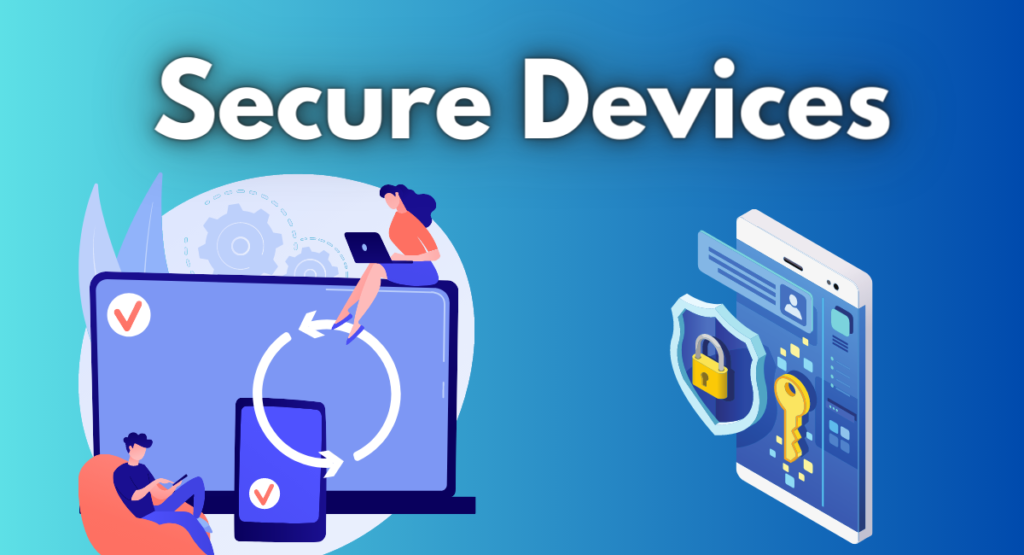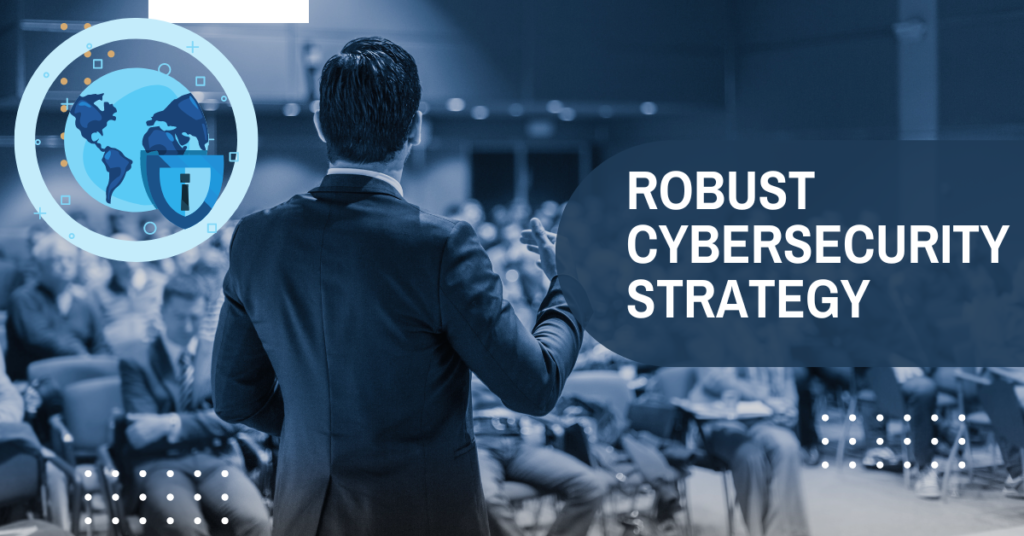A robust cybersecurity strategy involves a combination of people, processes, and technology to protect against threats, such as malware, phishing attacks, and data breaches. Cybersecurity threats are constantly evolving, and organizations need to be prepared to defend against them. This includes implementing strong access controls, regular security testing, and continuous monitoring to detect potential threats. There is no one-size-fits-all approach when it comes to developing comprehensive protection against online criminals and malicious actors, but there are best practices that can help ensure your organization is prepared. In this article, we will discuss the tips for building a Robust Cybersecurity strategy.
What is Robust Cybersecurity?
A robust cybersecurity strategy is a comprehensive approach to protecting your organization against cyber threats. It includes everything from preventive measures such as firewalls and antivirus software to detection systems that monitor for suspicious activity, to response processes that can be put in place if an attack does occur. Robust cybersecurity involves educating employees on the importance of staying safe online and training them to recognize potential threats.
Benefits of Robust Cybersecurity
Robust cybersecurity helps prevent data breaches, financial losses, and reputational damage. It also reduces the risk of operational disruptions and provides peace of mind for everyone involved in your organization, from customers to employees. Additionally, a strong security posture can give you an advantage when it comes to competing with other businesses in the industry. investing in robust cybersecurity can help you pass audits and regulatory compliance requirements
Here are the Robust security strategy tips
Multi-layered Security
Hackers and cybercriminals are always looking for ways to access sensitive information, putting businesses and individuals at risk. That’s why implementing a multi-layered security system is necessary. Combining firewalls, antivirus software, and encryption creates a powerful defense against threats. Firewalls act as a barrier, filtering out unwanted traffic, while antivirus software protects against malicious programs.
Encryption adds an extra layer of protection by scrambling data so that only those with the proper authentication can access it. You can rest assured that your data is safe and secure by implementing a multi-layered security system.
Incident Response Plan
Data breaches are becoming increasingly common, making it critically important for all businesses to have an incident response plan in place. If a breach occurs, it is crucial to act quickly and efficiently to minimize the damage and protect your customers’ privacy.
An effective incident response plan should include a step-by-step guide outlining the necessary measures to take, such as isolating affected systems, conducting a thorough investigation, notifying customers, and implementing more robust security protocols to prevent future breaches. businesses can instill customer confidence and safeguard their sensitive information by developing a comprehensive incident response plan.
Educate Employees
It’s more important than ever to educate employees on cybersecurity best practices to protect their personal information and the company’s sensitive data. One of the most common threats comes in the form of phishing emails or malicious links, which can lead to devastating consequences.
Companies can significantly reduce the risk of a cyber-attack by educating employees on how to spot suspicious emails and links and how to respond appropriately. Businesses can ensure the safety and protection of their employees and their company’s valuable assets by taking the time to properly train employees on these essential cybersecurity practices.
Secure all Devices

In a world where technology is integral to our daily lives, it’s crucial to take responsibility for the security of all our devices. Hackers are constantly finding ways to access personal information, making it more important than ever to secure all devices with strong passwords. Using simple passwords like your pet’s name or “123456” make it all too easy for hackers to gain access to your personal data.
Choosing a strong password with a combination of letters, numbers, and symbols can make all the difference in keeping your devices and your personal information safe. Remember, prevention is always better than cure, so be proactive in protecting your online identity by securing all devices connected to the internet with strong passwords.
Backup Your Data
In today’s digital age, protecting your data is more important than ever. Whether it’s personal photos, important work documents, or sensitive financial information, losing your data can be devastating. That’s why it’s crucial to regularly back up your data to ensure you are prepared for any potential data loss, including a ransomware attack.
Ransomware attacks are becoming increasingly common, and they can lock you out of your own files unless you pay a hefty ransom. By backing up your data, you can prevent the loss of your valuable information and avoid the stress and expense of dealing with a ransomware attack. Take the time to protect your data, and you’ll have peace of mind knowing that you’re covered in case the worst happens.
Monitor User Activity
Businesses are taking extra precautions to ensure the safety of their digital assets In a world where cyber attacks are becoming more common. One such measure is monitoring user activity and keeping track of any suspicious behavior. Companies can identify potential threats before they become serious issue by tracking user behavior.
Suspicious behavior could include accessing files or programs outside of an employee’s usual tasks, attempting to bypass security protocols, or accessing sensitive information outside of business hours. With the right tools in place, businesses can protect themselves from cyber threats and keep their confidential information secure.
Conclusion
Protecting your business from cyber attacks requires proactive risk management strategies. Implementing effective cybersecurity protocols, such as multi-layered security systems and incident response plans, can help you mitigate the likelihood of a data breach or other cyber attack. Educating employees on cybersecurity best practices and regularly monitoring user activity are important steps in preventing data loss. Taking the time to create strong passwords and back up your data will ensure that your organization is better prepared to respond if it does suffer an attack. Organizations can mitigate the risk of cyberattacks and protect their valuable assets, including customer data and intellectual property with a strong cybersecurity strategy in place.

